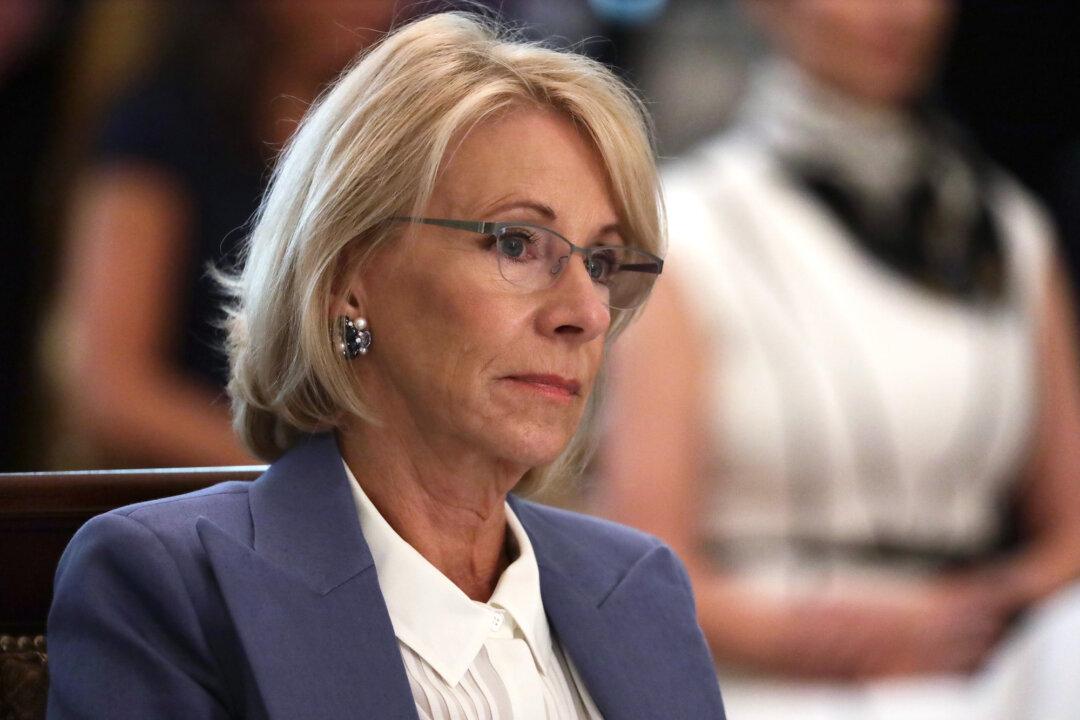Several states are suing Education Secretary Betsy DeVos and her department in order to block a rule over the amount of federal relief funding set to be transferred from public schools to private schools.
Attorneys general of California and Michigan announced the lawsuit on Tuesday. They were joined by Maine, New Mexico, Wisconsin, and the District of Columbia. The plaintiff alleged that the Education Department’s rule siphons resources away from economically disadvantaged public school students and improperly diverted it to private school students, including those from affluent families.





